
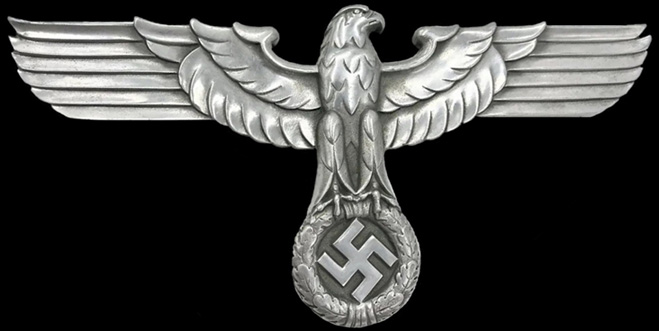
Interview with Helmut von Vollard-Bockelberg, Chief of Staff of the 11. SS-Panzergrenadier Division 'Nordland', Coburg, 1993.
Vollard-Bockelberg earned an impressive variety of medals during his service, some from foreign governments, and even earned the German Cross in Gold.
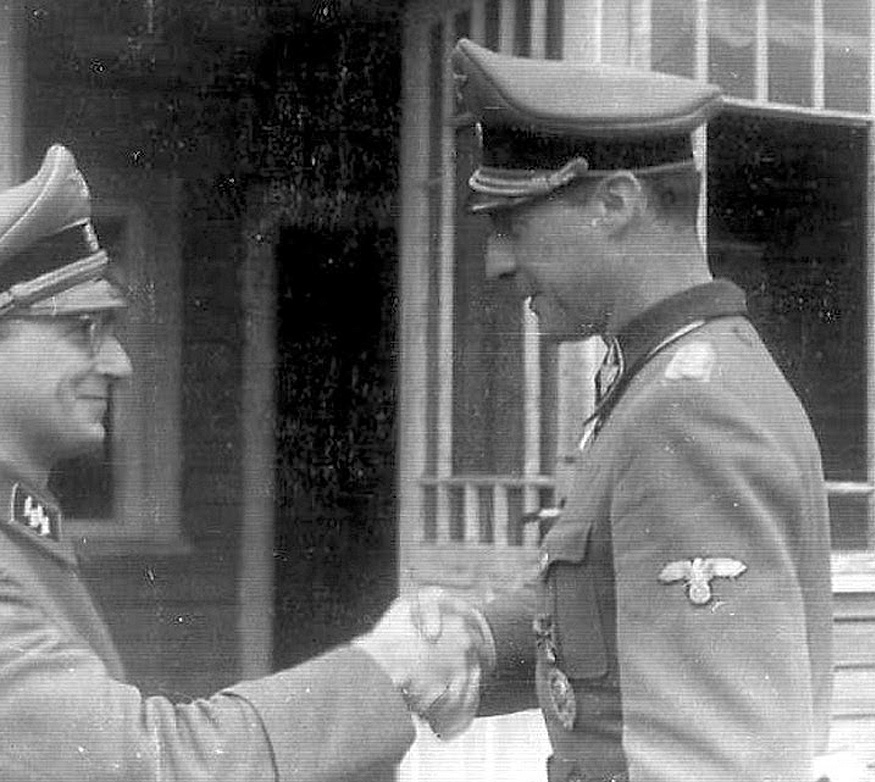
[Above: III. SS-Panzer-Korps medal awarding ceremony in Sillamäe (Estonia) for Knight's Cross winners, early September 1944.
SS-Obersturmbannführer Helmut von Vollard-Bockelberg is seen here (left) greeting Nordland's SS-Brigadeführer und Generalmajor der Waffen-SS Joachim Ziegler.
After scouring the internet this is the sole photograph we could find of Vollard-Bockelberg.]

Thank you for letting me meet you, can I ask you how you came to the
Waffen-SS?
Helmut: Yes youngster, it is nice to meet someone from America who is
interested in German history. I am afraid I cannot tell you much about my
time in the Waffen-SS, as it was short. Perhaps I will tell you how it began. I
come from a military family with some nobility.
I started my career in the 17. Reiter Regiment here in Bavaria; this
interest with cavalry grew into a fondness with Panzers. Most cavalry men
ended up going into the Panzer arm once it was established. I was fascinated
with the inner workings of the Panzers and enjoyed seeing them taken apart.
Germany went on to develop some of the best Panzers in the world,
if we would have been able to make more of them, and in just certain models,
the war would have turned out different perhaps.
I was part of Panzer Regiment 11, in the workshops first, then in the
field as chief of the second company in France. From there I was selected to
attend General Staff training and posted to the 9. Panzer Division as a staff
officer.
How I came to the Waffen-SS was due to the war needs in those last
months. Men were placed in positions where there was a need, and since I
was a staff officer, I was drafted, you could say. I ended up posted to the
Nordland Division and, by the close of the war, was made an SS-Standartenführer and posted to the SS-Panzer Korps.
Did you ever meet Hitler or Himmler?
Helmut: Well, I will tell you, yes. Today it is not wise to brag about such
things as the political winds have changed. I was an early supporter of the
Führer, and a matter of fact I was a very early member of the party. I held
member number 92 430 which gave me the Golden Party Badge.
I was forced to give up party membership due to the Reichsheer (Imperial German Army) frowning on it. Due to this, it took away the status. I met both of them early
on, seeing them in marches and speeches. It was a hard time in Germany
before 1933, but the NSDAP was actively trying to convince the people to vote for the
them. I also saw Himmler later in the war, he was certainly an interesting
person. I remember reading some SS publications during the war and was
quite intrigued by the research of the Ahnenerbe (Ancestral Heritage) society, and archaeologists.
I am still fascinated by the discoveries happening all over the world.
I have always been interested in ancient history, and the timeline of
civilizations. The SS had a very deep interest in this also, Himmler believed
himself to be a reincarnation of a great king. I understand your Patton was
the same way [Patton believed he had been a soldier many times in previous past lives. He even wrote a poem about it called 'Through a Glass, Darkly']. The SS held a deep reverence for our past and studied many
theories of the beginning of man.
What was the French campaign like for you?
Helmut: Ahh yes, we were part of the main thrust to trap the Allies. We had
the Panzer II, 35(t) [a Czechoslovak-designed light tank used by Germany], and some Panzer IVs. We came through Luxemburg and
mainly faced infantry, which the Panzers brushed aside. We crossed the
Meuse and broke into the French underbelly. By the time they knew what hit
them, it was too late.
This attack was a master stroke of German arms. It took the French
a few days to reason, and by this time their lines were unhinged and broken.
A shock I will tell you, they had better armor than we did. Our light Panzers
were no match for their heavy armor, which if they would have organized
better we would have had trouble.
The 7. Panzer Division raced ahead, far outpacing the main body and everyone thought it was mad. He was able to fool the French a few times and
seized vital areas, this destroyed French morale. I remember coming across the
dazed and confused French, who looked as though they had seen ghosts. Our
advance was hard, fast, and decisive.
It took the daring of Rommel also to deploy the flak guns on French
armor, which was better than ours. The 88mm could stop any armor the
enemy had, and this demoralized them further. I spoke to the French
commander who said he was caught off guard by our flak. He knew our
Panzers were weak but did not count on the 88mm.
He told me that one of his Char Bs [the Char B1 was a French heavy tank] had the engine blown out of the
back due to a direct hit from the 88mm. The blast blew him into a creek or
river, saving his life. Our regiment had a hard go at the French, and it was
only with better tactics and communication that we were able to beat them.
They had better armor than we did.
My regiment was the spearhead that was by Dunkirk, then we
received the halt order, which left us confused and angry. This allowed the BEF [British Expeditionary Force]
and French to run away to England. If we would have been allowed to take
Dunkirk, the war would have ended then. So instead, we stood by and cleaned
our Panzers.
After this fiasco, we were ordered to move to the Maginot Line to
begin attacks, but the Luftwaffe did the job for us. You should have seen the
devastation those bombs made on the forts. This was for the most part the
end and France surrendered in June after being mostly overrun.
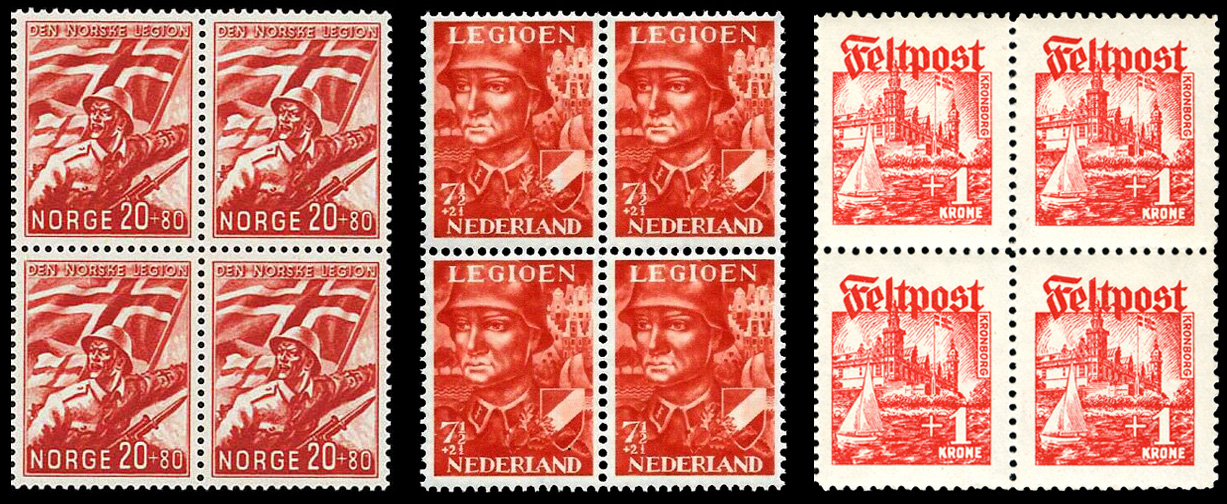
[Above: Nordland's volunteers were primarily from SS-Panzergrenadier-Regiment 23 Norge (Norway), SS-Panzergrenadier-Regiment 24 Danmark (Denmark) and SS Volunteer Legion Nederland (Netherlands).
Like all of the countries who contributed volunteers in the battle against commmunism the host countries released very cool postage stamps, postcards and posters. Here is a tiny example (the block of four stamps on the right are unissued Danish stamps).]
Did you see any war crimes in France?
Helmut: My god no, these battles were fought with professional armies who
respected each other. Now, there were incidences of German aircrews being
killed, and wounded being neglected. I heard about those, but in every war there are the fanatics who hate with a passion and have no discipline. I believe
this is what caused these incidences.
Now for German units, I know of no claims made against the Wehrwacht.
I know the Luftwaffe was accused of shooting refugees, but investigations
showed they were not true, or mistakes due to civilians hiding with the
military. This makes them hard to see from the air.
Now, for the Waffen-SS there are claims that continue to haunt us.
It was claimed after the war that English soldiers were shot down, but I can
be very skeptical about these. I do not remember any talk during the war of
illegal shootings by the Waffen-SS. However today they are being talked
about and pushed by the victors.
Personally, I believe these are cases of justified reprisals, or events
that were wartime combat turned into a massacre. Meaning a fallen company
did not fall in battle, but due to a crime. I lived through these times and I find the
accusations hard to believe, and the claims by the Russians are even more
unbelievable.
There is a saying you must understand, it says the winner of a war
gets to tell the history of the war. I am afraid this is the case regarding
Germany; we lost, so we have to agree with what the winners say. Our
historians of today are brought up with forty years of the Allied view, that is
all they know.
The Allies have never signed peace with Germany, technically we
are in a state of war, and a clause says if any resurgence of National Socialism
appears, they can start fighting again [the National Socialist government in fact never surrendered]. So, Germans have largely conditioned
themselves to not look beyond what the Allies tell us happened.
We accept it all, for fear of another war if we object to claims
about the Jews, or an aggressive war of world conquest. It is ridiculous to
believe Hitler wanted to rule the world, nowhere did he ever say that. He did
say his noble mission was to return the lost German lands to the Reich. If we
had won, we would no doubt have had our own war crimes trials in
Nuremberg.
You won the German Cross in Gold, can I ask how?
Helmut: Yes, I was with the Germanic Panzerkorps, and the award of the
Cross was due to leadership. Let me say you could be awarded this for a
single deed which was extraordinary, multiple deeds, or multiple deeds of
leadership. I was awarded this medal because I loved my boys, and they were
hard fighters. I would assign a target and they met it, having few losses. In
those last days it was all about slowing the enemy and giving more time for
evacuations and defense. This was hard as we had masses of refugees to help
as well.
My men bravely fought off massed attacks by the enemy and
punished them greatly. When I could, I would go and see the results. The
amount of arms and equipment the enemy had amazed me. We had the best
soldiers, but even the best can be overwhelmed by numerical superiority.
You must know the men of Nordland were not just German; these
were men from other countries who willingly volunteered to fight for
Germany. Their main reasons were to defeat Bolshevism, which was a world
threat even back then. They fought with their last breaths many times to
accomplish this.
I wear this award as testimony of the bravery of the soldiers I led and the loyalty they possessed. Felix Steiner was the one who put me up for
the Cross; it was a very high honor. He was a good commander and was that
type of leader who men would follow into hell.
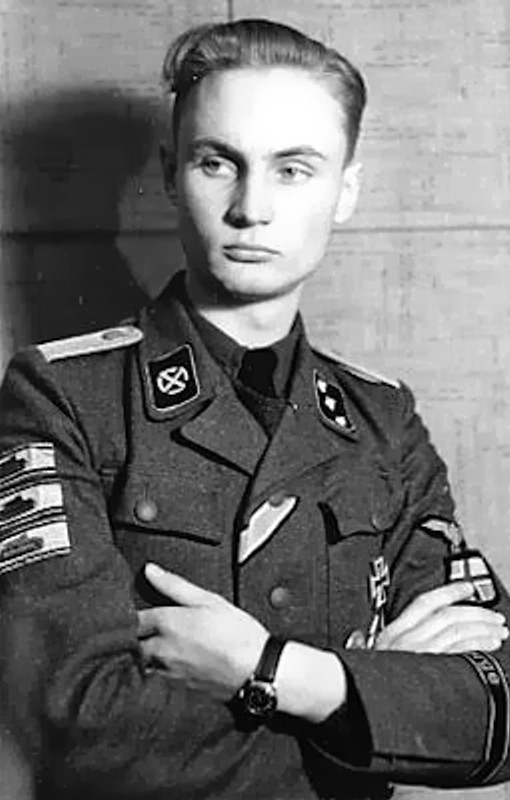
[Above: Fighter extraordinaire and hero Untersturmführer Johann Petter Balstad.
He was a Norwegian volunteer of SS-Panzergrenadier Regiment 23 Norge (11. SS-Freiwilligen-Panzergrenadier-Division Nordland).
Note on his right arm are THREE tank destroyer medals. These vaunted awards were given for single-handedly destroying enemy tanks.]
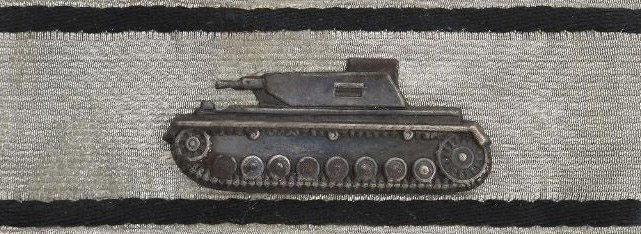
[Above: Here is an example of the Tank Destroyer Badge. It came in two grades--silver and gold.]
Do you have regrets having gone to the Waffen-SS?
Helmut: I would say no. I am disappointed by the treatment of former Waffen-SS soldiers, and the postwar treatment was appalling in many cases. I served
with brave and honorable men who deserved a much better fate. These were
mostly volunteers who made a choice to defend Europe against Bolshevism.
They came from every nation and sacrificed all they had in some
cases to fight this enemy. I firmly believe that if Germany did not attack and
bleed Russia, then they would have taken Europe. That was their plan, they
made it very clear that worldwide conquest and revolution was their aim.
The western allies saw this too late, and some I have met are
ashamed they did not aid Germany. They know we only wanted to free
Europe from the Marxist idea. Because of this we made many enemies, who
now have great power.
Was there animosity between the SS and the Wehrmacht?
Helmut: Yes and no, there indeed were some in the Wehrmacht who viewed the SS
as a private, political army whose only overseer was Himmler. This caused
alarm, as the Wehrmacht had several offices to oversee conduct. The SS answered
only to Himmler and Hitler.
With that said I want you to understand we fought as one on the
same battlefields. The Wehrmacht many times could count on the Waffen-SS to
rescue them. We were used later in the war as fire brigades, rushing to the
hot areas. The Waffen-SS grew to become the first multi-national European
army, like NATO.
The German Wehrmacht also had many volunteers, and some from drafts in occupied areas as well. The Waffen-SS was all volunteers
until very late in the war. I will say I later came to the view that the
Waffen-SS held of the Wehrmacht being less aggressive.
This came from many of the Wehrmacht being drafted and only thinking
of going home to their families. The Waffen-SS attitude was that we have a
life and death fight to win, literally if we lose, we lose everything. Draftees
usually do not think like that and are prone to give up easier. Surrender was
not in the creed of the Waffen-SS.
Rarely did we surrender in the east, as we knew from eyewitnesses
that the Bolsheviks killed SS men, once surrendered. They have bragged
about this I understand. We had no orders to not take prisoners, and always
did so, treating them fairly. As testament, I saw many former enemies come
over to fight for us in independent brigades and regiments.
They fought very well at the front, but our leadership made a
miscalculation in sending some west and using others to fight partisans. This
is not what they agreed to.
In this again there was friction between the Wehrmacht and SS. Poles and
Russians wanted to fight the Bolsheviks, not the western allies or partisans. I
understand when they did fight the partisans, they were very cruel to them
and their families.
In summary, the SS had respect for the Wehrmacht and viewed them as
comrades; most in the Wehrmacht felt the same in the end. In the beginning it was
not so, they feared a political army that was out of their control. You have to
know also that a few men in the Wehrmacht opposed Hitler, they were the July
traitors.
American Central Intelligence Agency file on Helmut von Vollard-Bockelberg (including period NSDAP and SS documents)
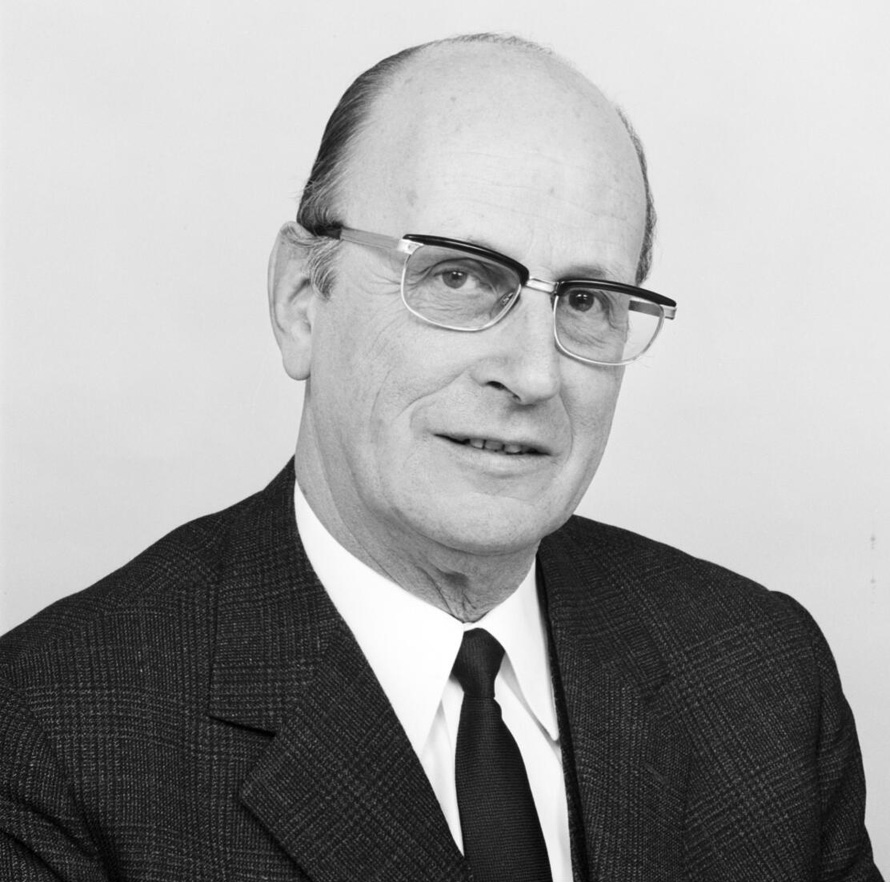
[Above: Years after the war Helmut von Vollard-Bockelberg became a politician in Germany.]
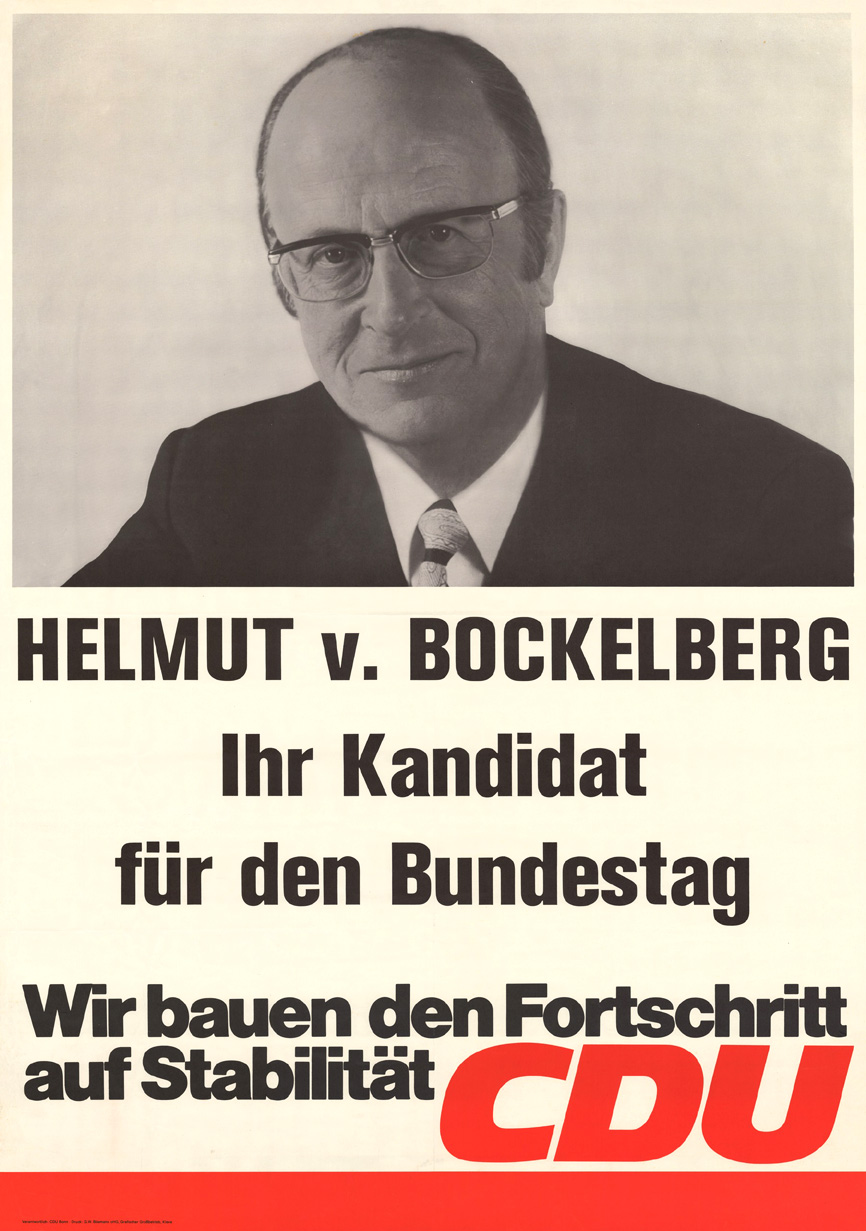
[Above: Helmut von Vollard-Bockelberg political advertisement.]
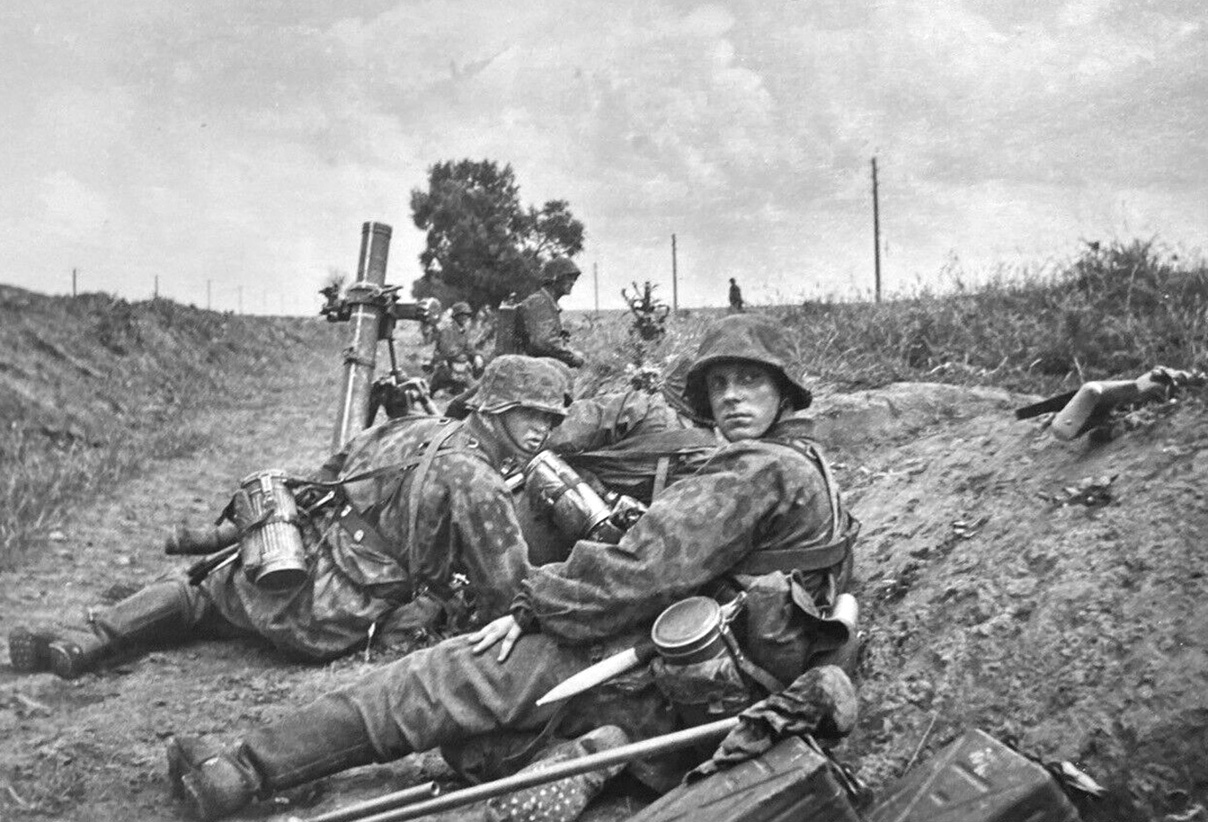
[Above: Knights of 'Nordland' somewhere in Russia.]
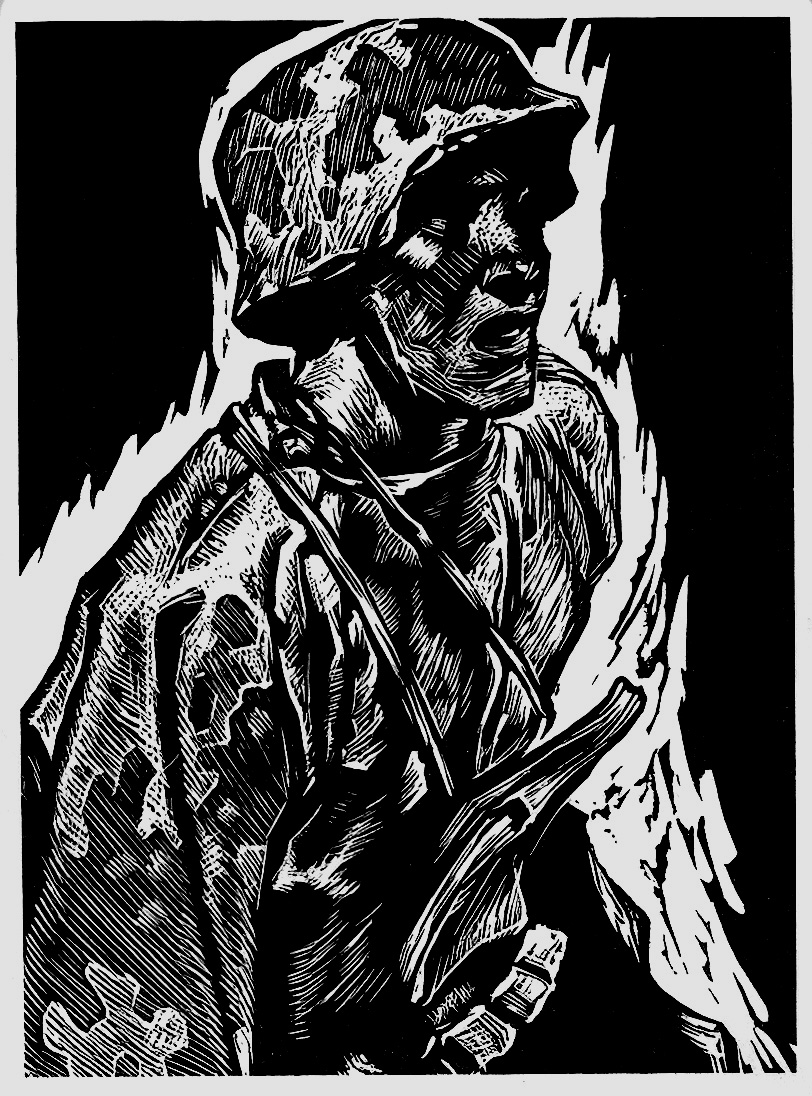

Back to Interviews













